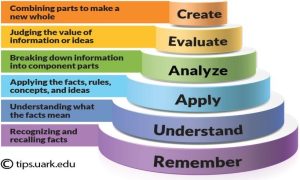Departments
Computer Science and Engineering (Cyber Security)
The Department of CSE – Cyber Security was established to address the pressing need for Cyber Security professionals in today's digital age. As organizations increasingly rely on technology, the threat landscape has expanded significantly. This program, developed in partnership with industry experts, offers a comprehensive curriculum covering cutting-edge Cyber Security topics such as cryptography, network security, cloud security, and digital forensics. By equipping students with the latest skills and knowledge, the students will be empowered to become agile defenders against cyber threats, safeguarding critical infrastructure and sensitive data. The program is designed to meet the evolving needs of the Cyber Security industry. Recognizing the growing demand for Cyber Security professionals, the Department of CSE – Cyber Security offers a specialized program that aligns with industry needs. The curriculum emphasizes practical skills, including vulnerability assessment, penetration testing, and incident response, to equip students to address real-world cyber threats.
Mission
Empower students with hands-on facilities, the essentials of Cyber Security and a strong ethical foundation. To facilitate learning environment, teamwork and global certifications for real-time challenges. To foster a culture to possess qualities of interpersonal, interdisciplinary, leadership and societal responsibilities.
Program Educational Objectives(PEOs)
PEOsA Graduate of CSE-Cyber Security will be able to:
PEO1: Understand the Cyber Security threat landscape and various types of cyber attacks, cyber crimes and vulnerabilities. Analyze ethical, legal and regulatory impact of computer systems on organizations, society and the individual. Identify risks, assess threats and apply cyber security skills to construct secure systems from system to human-computer interface. Continuously engage in activities that foster their computing and cybersecurity skills to stay ahead of emerging technologies and evolving threats.Program Specific Outcomes (PSOs)
CSE-Cyber Security graduates will have
PSO1: Savvy skill in applying principles of software development to redeem efficient software solutions.PSO2: A proactive approach to Cyber Security, staying updated on emerging threats and industry best practices to maintain a strong security posture.
Program Outcomes (POs)
1. Engineering knowledge: Apply the knowledge of mathematics, science, engineering fundamentals, and an engineering specialization to the solution of complex engineering problems.
2. Problem analysis: Identify, formulate, research literature, and analyze complex engineering problems reaching substantiated conclusions using first principles of mathematics, natural sciences, and engineering sciences.
3. Design/development of solutions: Design solutions for complex engineering problems and design system components or processes that meet the specified needs with appropriate consideration for the public health and safety, and the cultural, societal, and environmental considerations.
4. Conduct investigations of complex problems: Use research-based knowledge and research methods including design of experiments, analysis and interpretation of data, and synthesis of the information to provide valid conclusions.
5. Modern tool usage: Create, select, and apply appropriate techniques, resources, and modern engineering and IT tools including prediction and modeling to complex engineering activities with an understanding of the limitations.
6. The engineer and society: Apply reasoning informed by the contextual knowledge to assess societal, health, safety, legal and cultural issues and the consequent responsibilities relevant to the professional engineering practice.
7. Environment and sustainability: Understand the impact of the professional engineering solutions in societal and environmental contexts, and demonstrate the knowledge of, and need for sustainable development.
8. Ethics: Apply ethical principles and commit to professional ethics and responsibilities and norms of the engineering practice.
9. Individual and team work: Function effectively as an individual, and as a member or leader in diverse teams, and in multidisciplinary settings.
10. Communication: Communicate effectively on complex engineering activities with the engineering community and with society at large, such as, being able to comprehend and write effective reports and design documentation, make effective presentations, and give and receive clear instructions.
11. Project management and finance: Demonstrate knowledge and understanding of the engineering and management principles and apply these to one’s own work, as a member and leader in a team, to manage projects and in multidisciplinary environments.
12. Life-long learning: Recognize the need for, and have the preparation and ability to engage in independent and life-long learning in the broadest context of technological change.

The Bloom’s Taxonomy is to be followed in curriculum development, courseware development, planning and delivery of contents, Assessment, Mapping, Data Analysis and CQI (Continuous Quality Improvement)











